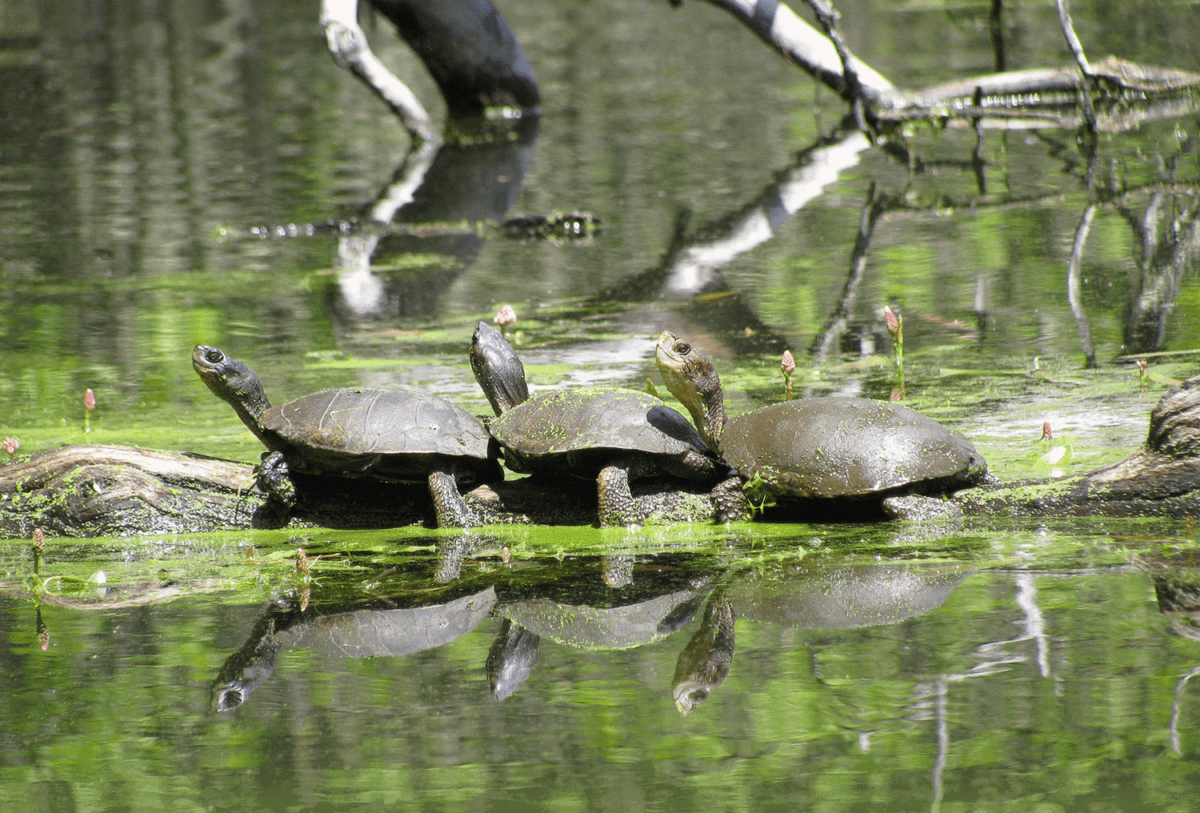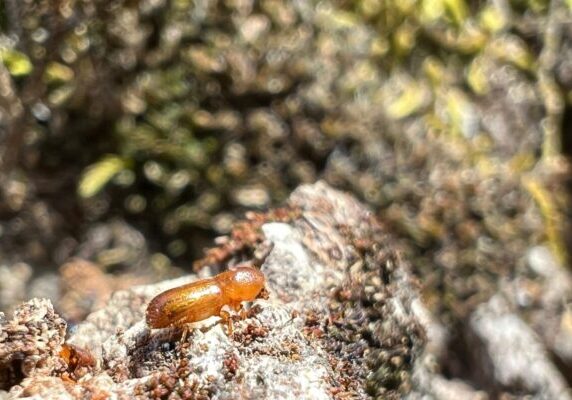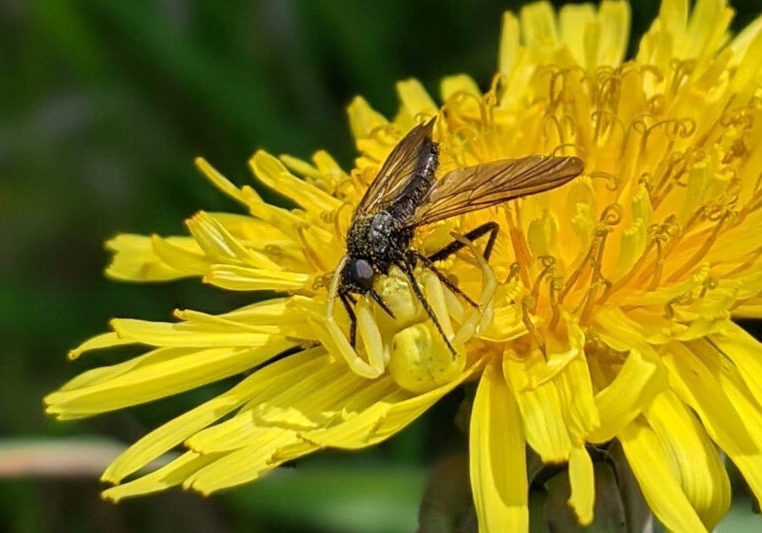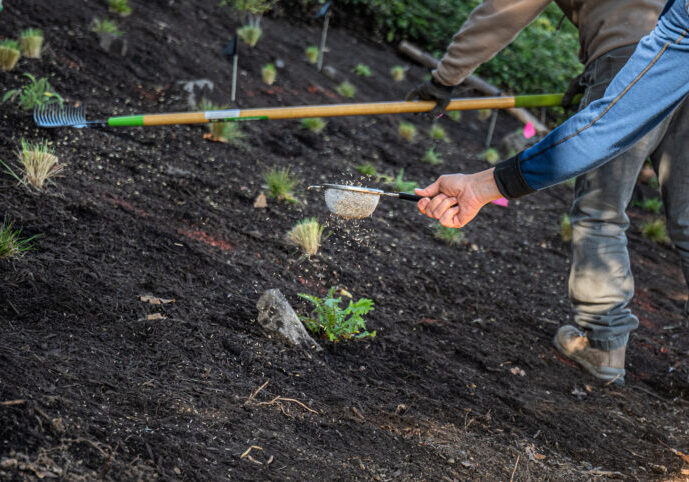If you have turtles in your pond, wetland or other slow-moving water on your property, lucky you!
Both species of Oregon’s native turtles are uncommon, and it’s hard for them to find suitable habitat. You’ll want to make sure the conditions you provide for them stay suitable or even improve.
The Oregon Native Turtle Working Group has resources to help you!
What kind of turtles do you have?
In Oregon, we have two species of native turtles, the western painted turtle and the western pond turtle, and several species of non-native invasive turtles. Visit the Oregon Native Turtle Working Group website for turtle identification information.
Don’t have turtles, but want them?
It’s illegal to capture/relocate or buy turtles and turn them loose in your pond. Focus instead on providing suitable habitat – the “build it and they will come” approach. Turtles are very capable of and are known to make long-distance treks to newly created and enhanced habitats. In any case, improving habitat in and around your pond will make it more attractive to songbirds, dragonflies, frogs and other awesome creatures. You can’t lose!
See turtles? Report them.
Biologists are tracking locations of turtles (both native and non-native) in Oregon. Let us know if you spot turtles, whether they are on your property or somewhere else. You can report your turtle sighting at www.oregonturtles.com/report.html or www.inaturalist.org/projects/western-pond-turtles-in-oregon. The first step in making sure turtle populations remain stable is knowing where they are.
Get more information.
An abundance of information on how to help Oregon’s native turtles can be found in a free, downloadable publication by Oregon Department of Fish and Wildlife: Guidance for Conserving Oregon’s Native Turtles including Best Management Practices.
Ask for help.
If you have turtles on your property and want help improving conditions for them, email oregonturtles@gmail.com and someone will get in touch with you.
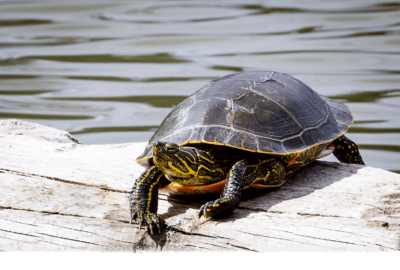
Learn more about creating turtle habitat.
Turtles have fairly simple needs, which you can help provide:
- Basking areas
After spending the winter hibernating, turtles need to haul out of the water in spring and early summer to warm up in the sunshine. They often select downed trees or large tree branches that have fallen into the water. If there is no natural downed wood in your pond or wetland, consider adding some. Turtles like to bask on wood as they can quickly drop into the water to avoid predators.
- Nesting areas
When it’s time to lay eggs, female turtles look for sparsely-vegetated areas that get plenty of afternoon sun, since the sun’s rays incubate the eggs. Suitable turtle nesting habitat has compact soils, usually with a high clay content to help the nest keep its shape and make it harder for predators to dig up the eggs. You can enhance nesting areas by providing patches of sparsely vegetated or bare ground in sunny areas close to your pond.
- Food and hiding cover
Young turtles conceal themselves from predators in rushes, sedges, duck weed and other vegetation at the shallow edges of the pond. Turtles eat worms, aquatic bugs, fish and other high protein items that help them grow. All turtles snack on aquatic vegetation, so it’s important to have a healthy plant community in your pond. Native plants attract a variety of invertebrates which in turn become food for turtles. Some shrubby/forested habitat nearby is ideal as some turtles over-winter on land.
- Minimal disturbance
Turtles, turtle nests and hatchlings, and even hibernating turtles, are sensitive to disturbances like pet dogs swimming in ponds occupied by turtles, kayakers getting too close to basking turtles, or mowing equipment coming too close to nesting turtles. Turtles will be more likely to use your pond if basking and nesting areas are a little more private and away from areas of regular disturbance.
This information was provided by the Oregon Native Turtle Working Group and Oregon Department of Fish and Wildlife. Download a fact sheet.
